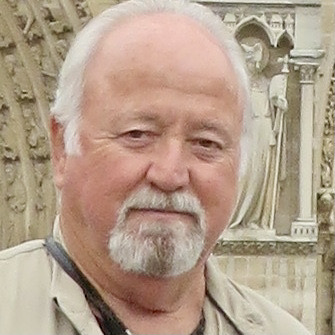This is a story about Steve Jobs, legacy, and a brutal truth most people never confront.
It’s about a single sentence Jobs included in the letter he wrote when he resigned as CEO of Apple, 10 years ago this week. But it has its roots in the commencement address Jobs gave at Stanford University in 2005.
Here’s the key passage from his resignation letter. It runs just 17 words:
“I strongly recommend that we execute our succession plan and name Tim Cook as CEO of Apple.”
It’s simple, matter-of-fact, and almost boring, despite how momentous the letter itself was. Read it in the context of what Jobs had said at Stanford, however, and it takes on incredible power.
These lines from that 2005 speech have stuck me ever since I first heard them:
“No one wants to die. Even people who want to go to heaven don’t want to die to get there. And yet death is the destination we all share. No one has ever escaped it. And that is as it should be, because Death is very likely the single best invention of Life.
It is Life’s change agent. It clears out the old to make way for the new. Right now the new is you, but someday, not too long from now, you will gradually become the old and be cleared away.
Sorry to be so dramatic, but it is quite true.”
Steve Jobs
(I’ve embedded the video of Jobs’s speech at the end of this article. If you haven’t seen it, I highly recommend it.)
By early 2011, Jobs understood that he was becoming “the old,” and that it was happening ahead of his time. Turning 56, he was battling pancreatic cancer for the second time. He’d had to take medical leave for most of the year.
He knew what was coming, and he died just 42 days after stepping down at Apple.
I expect that we’ll see quite a few retrospectives on Jobs’s life over the next little while, as we approach the 10th anniversary of his death.
But, these lines came racing back to me when I read that Cook, Jobs’s hand-picked successor, was entitled to a $750 million bonus this week for having served as Apple CEO for a decade.
It’s a lot of money, obviously. And I’m not going to pretend that Apple is without its detractors and its problems right now.
Still, consider that not only did Jobs recruit Cook to Apple, but he set up a succession plan that has now resulted in stable leadership for a full decade, and a company that is worth more than 7.5 times what it was in 2011.
Things often look inevitable in retrospect. But, all you have to do is compare the seamless transition at Apple over the past decade to succession battles at other companies that wind up consuming everything.
Heck, Jobs was a veteran of multiple succession battles at Apple, for that matter, dating back at least to when he recruited John Sculley as CEO, only for Sculley to force Jobs out of the company.
Couple that history with the fact that Jobs had already had the experience — he talked about it in the Stanford speech — of being told that his cancer would likely kill him in a matter of months.
He defied those odds for several years afterward, but the experience guided him.
The brutal truth here is really twofold:
First, all of us will die someday: you, me, everyone we know and love.
But also, if you want the things that you build to live on, then you have to begin to let go ahead of time.
Think far into the future, recruiting and growing the people you hope will take over. Let go of the very human concern that succession planning is about finding a replacement, and instead think of who might lead in his or her own way, and to destinations you might never dream of.
It means recognizing that when it comes to the tumultuous, emotional experience of a leadership change, it’s much better to be in a position where your official announcement can be as “matter of fact” and “almost boring,” as Jobs’s was.
Here’s the video of his speech at Stanford. If you haven’t seen this, I think it’s worth your time.

Leave a Reply
You must be logged in to post a comment.